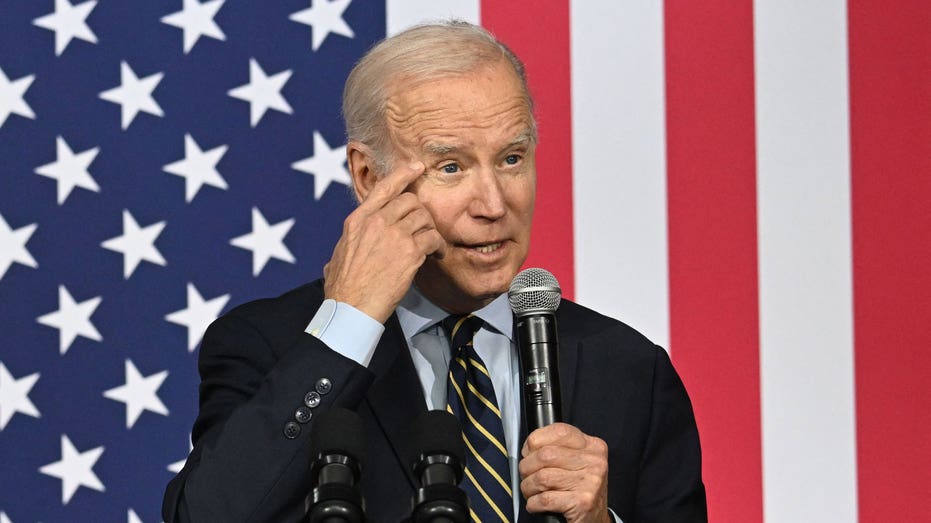Whistleblowers have emerged over the last several years to accuse the Biden administration of mishandling the federal investigation into Hunter Biden, politicizing federal law enforcement agencies and shielding evidence related to a “criminal scheme” Joe Biden allegedly engaged in as vice president.
Whistleblower protections are enshrined in federal statute, and federal law protects these disclosures.
The protocol is for a whistleblower to first go to an immediate supervisor or the supervisor in charge with the issue at hand.
If the whistleblower believes that reaching out to a supervisor could jeopardize his or her well-being or that supervisor is implicated in any potential misconduct, the whistleblower can go directly to the inspector general of the agency. From there, the inspector general can communicate with Congress when appropriate.
Here’s a breakdown of some of the whistleblowers in the administration:
An IRS employee contacted Republicans and Democrats on the House and Senate Judiciary committees, the Senate Finance Committee and the House Ways and Means Committee last month claiming the Biden administration is mishandling the federal investigation into Hunter Biden. This whistleblower reached those committees through his attorney, Mark Lytle.
The whistleblower also made protected disclosures internally at the IRS, to the inspector general for tax administration at the Treasury Department and to the Justice Department inspector general.
Lytle said his client’s disclosures “contradict sworn testimony to Congress by a senior political appointee” and involve “failure to mitigate clear conflicts of interest” in the Hunter Biden investigation.
IRS WHISTLEBLOWER LETTER ACCUSES DOJ OF RETALIATION IN HUNTER BIDEN PROBE
Reports have suggested that “senior political appointee” could be a reference to Attorney General Merrick Garland and his testimony on Capitol Hill in March and last year in which he said U.S. Attorney for Delaware David Weiss can conduct the Hunter Biden investigation independently.
Lytle said his client has detailed examples of “preferential treatment and politics improperly infecting decisions and protocols that would normally be followed by career law enforcement professionals in similar circumstances if the subject were not politically connected.”
Hunter Biden has been under federal investigation since 2018. The federal investigation into his “tax affairs” began amid the discovery of suspicious activity reports regarding funds from “China and other foreign nations.”
In 2020, it became known that the FBI had subpoenaed the laptop belonging to Hunter Biden in the course of an existing money laundering investigation.
Hunter Biden confirmed the investigation into his “tax affairs” in December 2020 after his father was elected president. The investigation is being led by Weiss, who was appointed by President Trump.
HUNTER BIDEN INVESTIGATION BEING MISHANDLED, ‘CLEAR CONFLICTS OF INTEREST’: IRS WHISTLEBLOWER
This week, Lytle and Tristan Leavitt, the whistleblower’s other attorney, notified Congress that the whistleblower’s entire team at the IRS was removed from the Hunter Biden probe. The legal team is now accusing the government of illegal retaliation.
The White House dismissed allegations from the whistleblower and said President Biden has upheld his commitment to ensure the investigation is “free from any political interference.”
A whistleblower is alleging that the FBI and the Justice Department are in possession of a document that describes a criminal scheme involving Joe Biden when he was vice president and a foreign national relating to the exchange of money for policy decisions.
The document is an FBI-generated FD-1023 form. The whistleblower said the document “includes a precise description of how the alleged criminal scheme was employed as well as its purpose.”
An FD-1023 form is used by FBI agents to record unverified reporting from confidential human sources. The form is used to document information as told to an FBI agent, but recording that information does not validate or weigh it against other information known by the FBI.
The whistleblower went to House Oversight Committee Chairman James Comer, R-Ky., and Sen. Chuck Grassley, R-Iowa. Comer subpoenaed the FBI for the document.
The FBI did not comply with the subpoena, saying it is “committed to working together through this process,” but explained that it could not share information, including “unverified or incomplete” information, that could “harm investigations, prejudice prosecutions or judicial proceedings, unfairly violate privacy or repetitional interests or create misimpressions in the public.”
FBI DOESN’T SHARE DOCUMENT GOP SUBPOENAED ALLEGING ‘CRIMINAL SCHEME’ INVOLVING BIDEN
The FBI said “even confirming the fact of the existence (or nonexistence) of an investigation or a particular piece of investigative information can risk these serious harms,” which is “why it is — and has long been — standard practice for law enforcement agencies to decline to confirm or deny such a fact.
“Thus, your request for a single FD-1023 report that you say includes a ‘precise description’ of an ‘alleged criminal scheme’ risks the harms that our confidentiality rules protect against,” the FBI wrote.
The House Judiciary Committee and its Subcommittee on the Weaponization of the Federal Government spoke with more than two dozen FBI whistleblowers who alleged politicization within the bureau.
Jim Jordan, R-Ohio, released the committee’s report Thursday, first reported by Fox News Digital, which compiled the allegations from the whistleblowers.
FBI WHISTLEBLOWERS SAY PRO-LIFE GROUPS, CATHOLICS WERE ‘TARGET OF THE GOVERNMENT’: JORDAN
The whistleblowers accused the FBI of targeting pro-life groups, Catholics and parents attending school board meetings. The whistleblowers claimed that the bureau worked to “inflate” cases to label more under the umbrella of domestic violent extremism.
Three of the whistleblowers who had their security clearances revoked by the FBI testified publicly Thursday before the committees.
Steve Friend, a former FBI special agent; Marcus Allen, an FBI staff operations specialist; and FBI Special agent Garret O’Boyle testified that they were retaliated against for expressing different views.
The FBI, though, defended the revocation of their clearances and their suspensions, explaining that one refused to participate in an arrest; espoused “an alternative narrative about the events at the U.S. Capitol on Jan. 6, 2021;” participated in “multiple, unapproved media interviews, including an interview with a Russian government news agency;” and more.
























